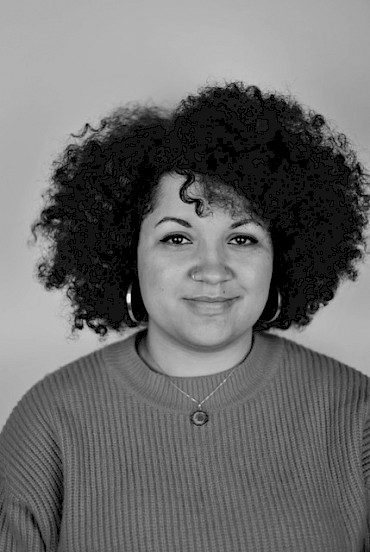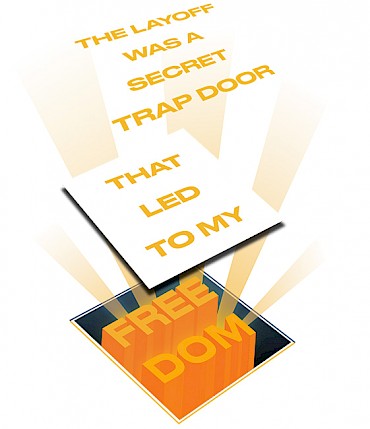 Jenni Moore is a freelance writer, editor, home chef and animal lover living in PortlandOn March 13, I received a phone call: I was being temporarily laid off from my full-time, salaried role as music editor at the Portland Mercury, along with most of my coworkers. I wasn’t exactly surprised, but it was a strange feeling. After blogging and interning for years for no pay—paying your dues, they said—I “pulled myself up by my bootstraps” and worked my way up from Mercury freelancer to copy chief to music editor, embodying a title I had long described as my “dream job.”
Jenni Moore is a freelance writer, editor, home chef and animal lover living in PortlandOn March 13, I received a phone call: I was being temporarily laid off from my full-time, salaried role as music editor at the Portland Mercury, along with most of my coworkers. I wasn’t exactly surprised, but it was a strange feeling. After blogging and interning for years for no pay—paying your dues, they said—I “pulled myself up by my bootstraps” and worked my way up from Mercury freelancer to copy chief to music editor, embodying a title I had long described as my “dream job.”
For some reason I felt... relieved when I got the call. My boss, whom I adore, was regretful and clearly upset over the forced mass exodus during the call. But for me, it felt like he had lifted a weight off my shoulders. Because of Covid-19, the paper’s ad revenue dried up, and the layoffs became permanent.
Again, I wasn’t surprised by this because the print journalism industry was struggling long before the pandemic, operating on an unsustainable model and laying off workers left and right. The full-time, salaried journalists who are on staff are often expected to be Swiss Army knives, writing and editing as many stories and doing as much extra work as possible. All this leads to many salaried journalists working closer to 50-hour weeks or, for others, nonstop.
Getting laid off made me realize that while my job was very much appreciated by the community and coveted in the world of local journalism, my work was not “essential” to human life. Having a break from it made me realize that my stressful newspaper job also wasn’t essential to my own happiness. I thought spending 40-plus hours a week glued to my laptop, getting into all the shows I wanted, and being the point person for covering the massive beat that is Portland music would be my ideal job. What I didn’t expect was that it would become overwhelming, taking the fun out of devouring music and attending shows. What used to be my sanctuary of fun and escapism became a constant opportunity to do more work.
Don’t get me wrong, I enjoyed working at the Mercury more than any job I’ve ever had. I learned a lot, had great coworkers, and likely would have stayed there much longer had this pandemic not put a pause on everything.
In American society, many of us are led to believe we’re supposed to learn how to do one thing really well. Pick a lane, and stay in it. I felt stuck in a role that I had always asked for and was riddled with shoulds: I should be happy. I should see it through because it’s the job I always thought I wanted. The layoff was a secret trap door that led to my freedom.
 Illustration by Jeff HayesBecause of the network and reputation I had built writing for We Out Here Magazine, the Mercury and others, I now receive plenty of freelance inquiries and other career-enhancement opportunities in my inbox. This is a far cry from my pre-Mercury journalism career: begging editors for a chance to write or intern for no pay.
Illustration by Jeff HayesBecause of the network and reputation I had built writing for We Out Here Magazine, the Mercury and others, I now receive plenty of freelance inquiries and other career-enhancement opportunities in my inbox. This is a far cry from my pre-Mercury journalism career: begging editors for a chance to write or intern for no pay.
For some, the freelancing game might just be the way to survive this industry without experiencing burnout. Publicly processing arts and entertainment works or hard news at a rapid rate in the age of “cancel culture” can be terrifying—especially when you are not just the only Black person but the only person of color on staff. Non-BIPOC editors want us to write these rich and juicy ethnic stories, but it’s become all too typical that the entire editorial lens of the multifarious BIPOC communities falls on me, my knowledge and awareness. My Caucasian colleagues, who often expressed a lack of diversity of their own volition, had the benefit of my editor lens and judgement whenever they’d cover something about the Black experience; I never got the same privilege. So the idea of taking on a larger feature story on something like Black motherhood in Portland or indigenous sustainable food practices often becomes incredibly daunting.
These regional publications are overwhelmingly run by white progressive people who consider themselves allies, and who make increasing efforts to include BIPOC voices in their pages. Yet it remains painfully obvious: BIPOC editors have a harder time getting and/or keeping a job at one of Portland’s print outlets. While it’s unsettling to see increasingly fewer Black journalists in local staff media positions, I’m not sure whether having a token person at each outlet is the answer either.
There needs to be significantly better representation in terms of media workplace diversity, and it’s high time for BIPOC professionals in Portland to lead and own their own publications. It also doesn’t escape me that despite my efforts to the contrary, my body of work reads as overly sensitive to the feelings of white people. And as a half-white person with lots of white friends, living in the whitest city in the US, all of this makes total sense.
 So after the pandemic caused us all to lose our jobs, I decided to take a break from it all, escape my laptop for a while, and listen to music purely for the enjoyment of it—not because it was my job. I wanted to get lost in Jazmine Sullivan’s voice and dance to Afrobeat around my house without worrying about everything I’m going to say about it. I asked myself, “Why am I charging myself with doing this work full-time if it stresses me out so much?”
So after the pandemic caused us all to lose our jobs, I decided to take a break from it all, escape my laptop for a while, and listen to music purely for the enjoyment of it—not because it was my job. I wanted to get lost in Jazmine Sullivan’s voice and dance to Afrobeat around my house without worrying about everything I’m going to say about it. I asked myself, “Why am I charging myself with doing this work full-time if it stresses me out so much?”
Now I am learning that I’ve earned the right to only take on projects that feel good. I’ve been able to work on some seriously life-affirming pieces for new-to-me publications like Portland Monthly, Eater Portland, Travel Oregon, and of course, here in Vortex, while continuing to contribute to the Mercury as a fond freelancer. (And FYI: I write a weekly, no-stress column for the Merc called Refresh Playlist, focusing on new local and national releases that offer a few breaths of bliss in this weird moment in time.) For the time being, I seem to be surviving as an independent contractor and temp worker.
I don’t feel sad about losing my job; I feel blessed for the experience that helped me fine-tune my skills, make wonderful connections, and showed me I can accomplish whatever dream I have for myself if I just keep at it. The loss was actually a gift that helped me realize what I truly want is flexibility and freedom. No matter what career changes may come, I’ll always write and want my work published in some form. (It’s part of my Beyoncé “I Was Here” mentality.)
As an independent contractor, I have more time to write for other outlets, and explore my various passions for food, wellness, working with animals, plants, or even becoming a backup singer. In this new world, I’ve learned that my voice and skills are in high demand, and I have options. But I’ve ultimately learned that once I get to a certain spot in my career, I may come to find that it’s not the destination I had fantasized about. I may decide to change course. That’s life, and it’s fine.









